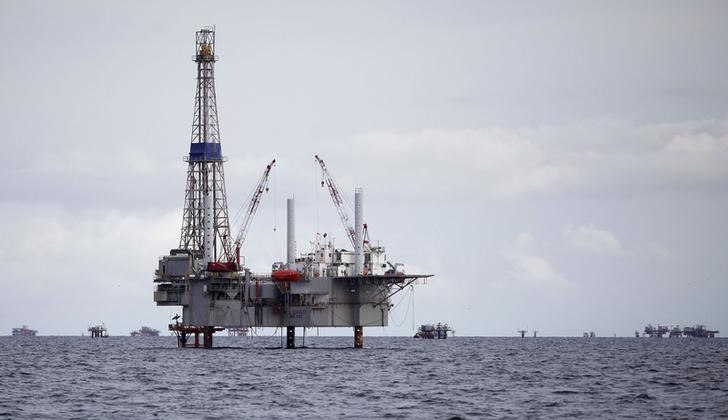
© Reuters.
By Gina Lee
Investing.com – Oil was up on Friday morning in Asia, remaining around a two-month high. Brent crude is on track for its biggest weekly jump in one-and-a-half months, supported by the prospect of the European Union (EU)’s ban on Russian oil and the upcoming U.S. summer driving season.
Brent oil futures were up 0.21% to $114.41 by 12:55 AM ET (4:55 AM GMT) after climbing as high as $118.17 earlier in the session and the benchmark was set for a gain of about 4% for the week. WTI futures inched up 0.09% to $114.19 and was set for a weekly gain of about 0.7%.
“Momentum is flat-out bullish, with many factors pointing to a tighter market, even more so with the EU on the precipice of a total ban on Russian energy,” SPI Asset Management managing partner Stephen Innes told Reuters.
“Ahead of peak U.S. driving season, refined products remain in alarmingly short supply in the West, which should keep a high floor on oil prices through the summer.”
Both Brent and WTI crude contracts are set to end the week higher as the European Commission continues seeking the unanimous support of all 27 bloc member states needed to implement its proposed new sanctions against Russia.
Hungary is one member state that remains a stumbling block to this unanimous support. The country needs three-and-a-half to four years to shift away from Russian crude and make huge investments to adjust its economy, according to a top Hungarian aide, adding that Hungary cannot back the EU’s proposed oil embargo until there was a deal on all issues.
“The combination of actual loss of supply and the increasing refusal to accept supply from Russia will see these commodities, oil and gas, move considerably higher,” ACY Securities chief economist Clifford Bennett told Reuters.
The black liquid has gained about 50% year-to-date.
Meanwhile, the Organization of the Petroleum Exporting Countries and allies (OPEC+) is set to leave 2021’s oil production deal unchanged when it meets on June 2. The cartel could raise July output targets by 432,000 barrels per day, rebuffing Western calls for a faster increase to lower surging prices, six OPEC+ sources told Reuters.
Source: Investing.com






























